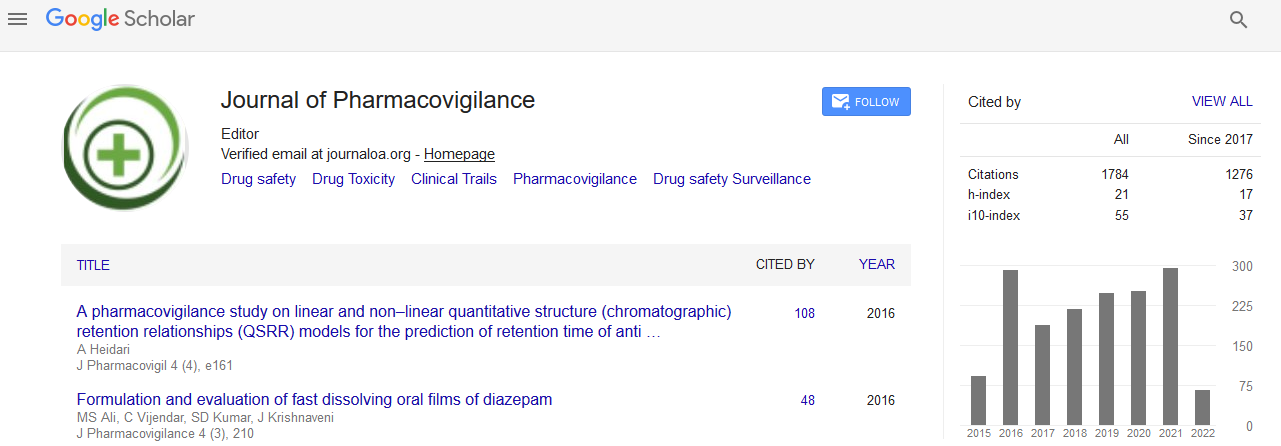Indexed In
- Open J Gate
- JournalTOCs
- The Global Impact Factor (GIF)
- RefSeek
- Hamdard University
- EBSCO A-Z
- OCLC- WorldCat
- Publons
- Euro Pub
- Google Scholar
Useful Links
Share This Page
Journal Flyer

Open Access Journals
- Agri and Aquaculture
- Biochemistry
- Bioinformatics & Systems Biology
- Business & Management
- Chemistry
- Clinical Sciences
- Engineering
- Food & Nutrition
- General Science
- Genetics & Molecular Biology
- Immunology & Microbiology
- Medical Sciences
- Neuroscience & Psychology
- Nursing & Health Care
- Pharmaceutical Sciences
Holistic medicine: A new paradigm
2nd International Conference and Exhibition on Pharmacovigilance & Clinical Trials
November 18-19, 2013 Hilton San Antonio Airport, TX, USA
K. Jahnavi Ramya
Accepted Abstracts: J Pharmacovigilance
Abstract:
Schizophrenia is characterized by a broad range of unusual behaviors that cause profound disruption in the lives of people suffering from the condition, as well as in the lives of the people around them. Schizophrenia strikes without regard to gender, race, social class or culture. In treating schizophrenia patients, chlorpromazine a conventional anti-psychotic drug, which was discovered in 1950?s, has an exhaustively characterized efficacy/safety profile. However, chlorpromazine is not specific to one site of action within the body. Consequently, it is known to cause adverse effects ranging from dry mouth, blurred vision and urinary retention as well as restlessness, tardive dyskinesia which can be difficult to reverse. Second-generation antipsychotic agents like clozapine, risperidone, olanzapine etc., were found to be inconsistently more effective than first-generation agents in alleviating negative, cognitive, and depressive symptoms and had a lower liability to cause tardive dyskinesia; these modest benefits were principally driven by the ability of second-generation antipsychotics to provide equivalent improvement in positive symptoms along with a lower risk of causing extra pyramidal side-effects. Data from two major government-funded studies of comparative antipsychotic effectiveness in schizophrenia contradict the widely prevalent belief that the newer second-generation medications are vastly superior to the older first-generation drugs.


